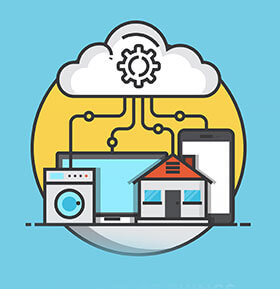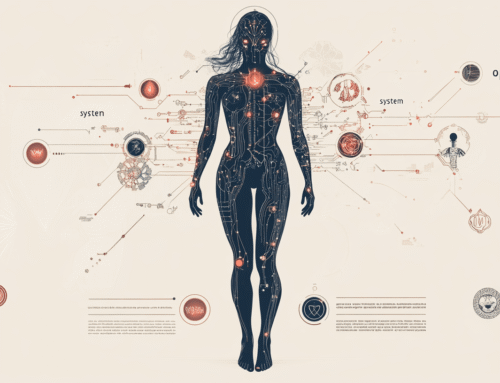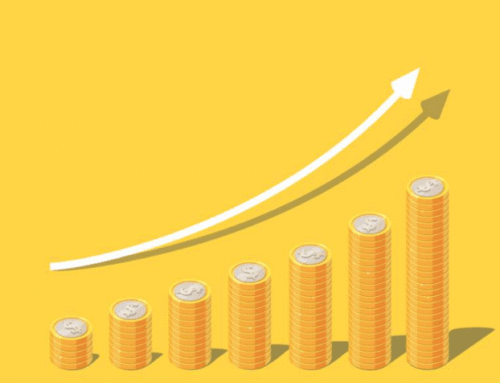Let’s be honest.
Most of us aren’t losing sleep over life-or-death decisions. We’re losing sleep over whether we replied too bluntly to that text… or if we should’ve ordered the other thing from the menu.
That’s the exhausting trap Anne Bogel explores in her brilliant book Don’t Overthink It—and it’s one every digital creator, solopreneur, and midlife reinventionist knows all too well.
You’ve got enough plates spinning. The last thing you need is a mental loop replaying “should I or shouldn’t I?” on repeat like a bad 80s track.
So let’s break it down: What is overthinking, why do we do it, and how do we actually stop?
🧠 What Overthinking Really Steals From You
Overthinking isn’t deep thinking. It’s circular thinking. You go around and around, but never forward.
You second-guess yourself on tiny choices.
You analyze every word you said in a meeting.
You delay decisions waiting for the “perfect” answer (spoiler: it never comes).
What Bogel reveals is this: overthinking is a thief. It steals your energy, your time, and your confidence. And it hits hardest in the moments that should feel joyful, easy, or light.
If you’ve ever stared at a social media caption for 45 minutes, or hovered over “publish” on a blog post because it wasn’t “ready,” you’ve met the enemy.
😵💫 Decision Fatigue is Real—But Avoidable
We make hundreds of decisions a day—everything from what to eat to whether to reply to that email right now or later.
Overthinking turns simple choices into exhausting ones. And decision fatigue creeps in fast.
But here’s the kicker: you don’t need to reduce your decisions—you need to simplify them.
That’s where habits, values, and defaults come in.
Think of it like this: every time you automate something small (like what you eat for breakfast or what order you post content in), you free up space for bigger creative and strategic work.
Steve Jobs wore the same outfit every day not because he lacked fashion sense—but because he knew his energy belonged elsewhere.
🛑 The Perfectionist’s Trap: Analysis Paralysis
One of the most paralyzing forces in modern life is perfectionism disguised as “responsible thinking.”
But as Bogel makes clear, perfectionism is not a virtue—it’s a delay tactic.
We get stuck believing there’s one “right” answer. So we research endlessly. We hesitate. We postpone.
The truth? Most of the time, there are several good-enough answers. Progress matters more than perfection.
You learn more by doing than by stewing.
Here’s the mantra to remember: Clarity comes from action, not contemplation.
🔍 Identify Your Values = Instant Clarity
One of the most powerful tools in the book? Values-based decision making.
When you’re unsure what to do, ask yourself: What do I want more of in my life?
-
If you value peace, you might decline the invitation that drains you.
-
If you value growth, you say yes to the opportunity even if it’s scary.
-
If you value simplicity, you choose what’s easier and more elegant.
When your values lead, your choices become clear. You don’t need to overthink.
Your values become your personal operating system.
🧘 You Can’t Control Everything—But You Can Control Your Response
This one hits deep.
Anne reminds us that while we can’t control what happens to us, we can choose how we respond. That’s where our power lives.
You can train your brain to focus on helpful thoughts, rather than defaulting to worst-case scenarios or regret loops.
Here’s how:
-
Practice mindfulness (catch yourself spiraling)
-
Use positive reframes (“This is tough, but I’m tougher.”)
-
Interrupt the cycle with gratitude, movement, or play
Your thoughts are not facts. You can question them, replace them, and rewire them.
This is the same principle that powers a fitness transformation at 65 or a business pivot at 55—reclaiming the power of choice.
🌼 Treat Yourself… Without the Guilt
One of the most joyful (and sneakily profound) parts of the book is this: don’t overthink pleasure.
That £5 bunch of tulips?
That magazine you love but feel guilty buying?
That slow walk with no podcast or productivity?
Buy the tulips.
Read the magazine.
Take the walk.
Overthinking makes us delay happiness in the name of false logic.
Bogel argues for the power of small joys, guilt-free. Micro-delights create a mindset of abundance. They remind your brain: “Life isn’t just about getting through—it’s about enjoying it.”
And in a business-building journey that can be lonely or pressure-filled, those little treats matter more than you think.
🔁 Create Mental Defaults (and Avoid the Trap Next Time)
One of the book’s most practical ideas is this: pre-decide.
Set rules for your life in advance. This reduces friction and frees up your mind.
Some examples:
-
“If I’m invited to an event after 8pm, I decline.” (Value: rest)
-
“If a decision takes less than 5 minutes, I make it immediately.” (Value: momentum)
-
“If I start overthinking, I do a 5-minute reset walk.” (Value: mental peace)
These are like internal systems for your brain—the mental version of creating automated email funnels or SOPs in your business.
Set the rule once. Reap the clarity every time.
💡 Fit at 65 Meets “Don’t Overthink It”
Here’s where this ties into my Fit at 65 journey—and maybe yours too.
When I started going to the gym every 2 days at age 65, it would’ve been easy to fall into mental traps:
-
Am I too old to change?
-
What will people think?
-
Is it really worth it if I don’t have six-pack abs?
But I didn’t let those questions win.
I made one simple rule: I show up. Every two days. No debate.
I didn’t wait for motivation. I didn’t get stuck in “perfect plan” purgatory.
I acted. I experimented. I adjusted. And I built a new identity.
That’s what this book is really about—building a life by design, not by default. And cutting through the noise so you can hear your own wisdom again.
🎯 Final Takeaway: Don’t Let Thoughtfulness Become a Burden
Thoughtfulness is a strength.
But overthinking? That’s when thoughtfulness becomes anxiety in disguise.
The good news is you can rewire this.
You can start making confident decisions faster.
You can ditch guilt and lean into joy.
You can treat yourself without the internal drama.
And you can start today—not by making one big perfect decision, but by making one simpler one.
So the next time your brain starts spinning the same question like a hamster on a wheel, remember Anne Bogel’s wisdom:
“You don’t need to think more—you need to think differently.”






